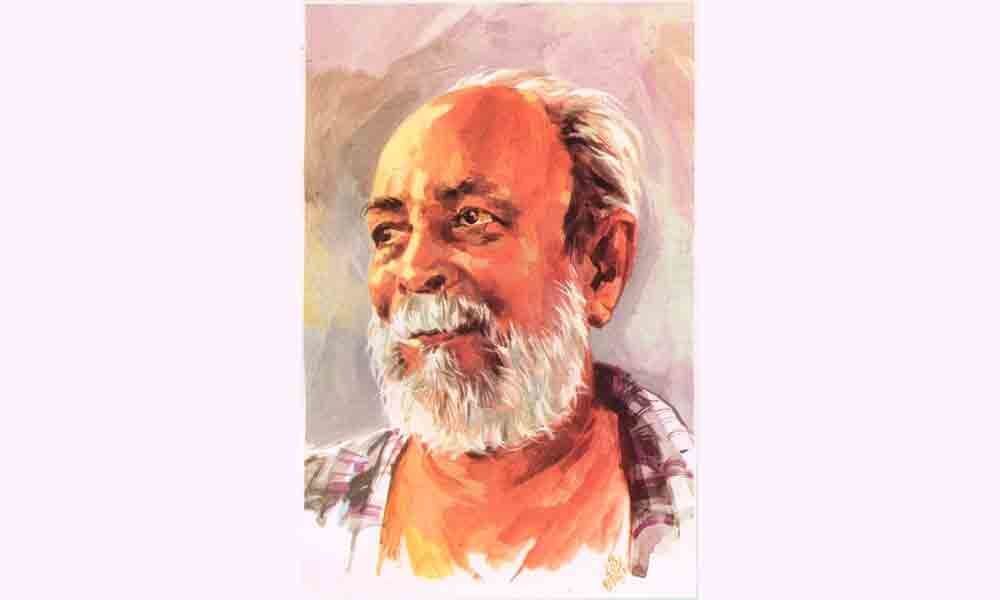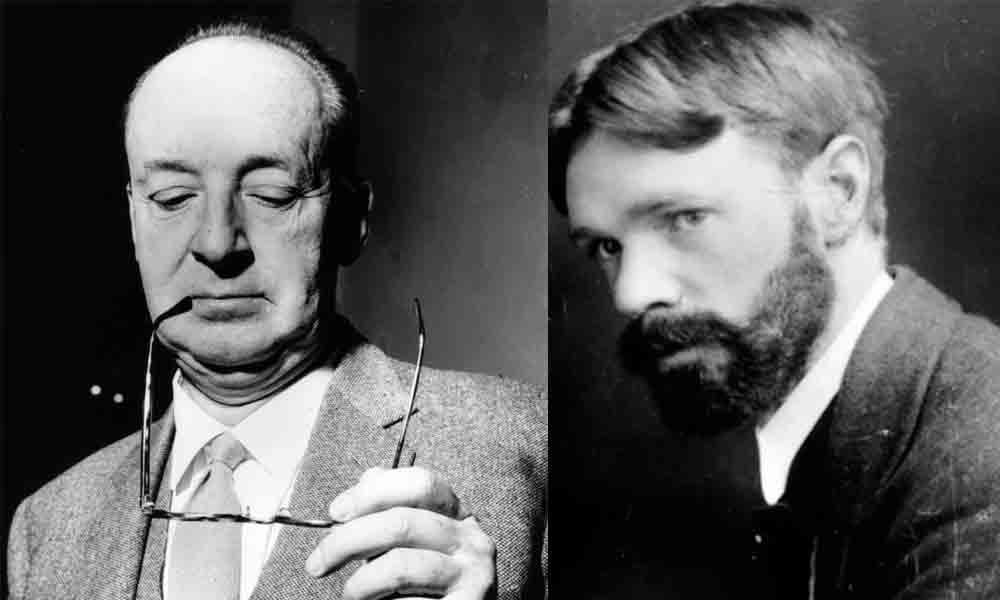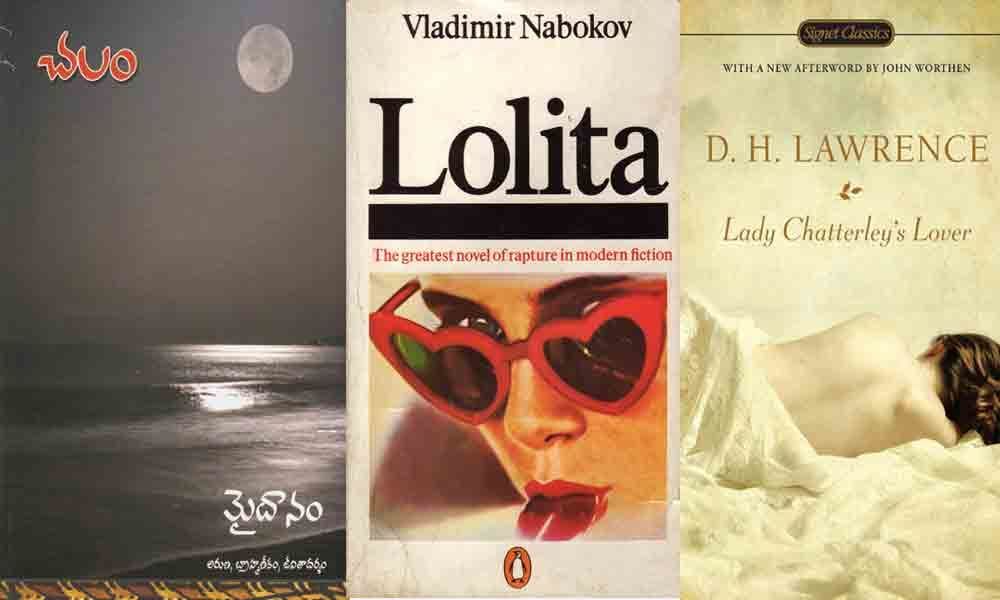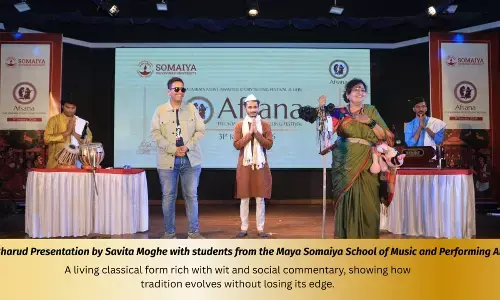Controversially yours!
Gudipati Venkata Chalam popularly known as Chalam was champion of women’s liberation, sexuality and morality. Although his works were often termed as controversial for their progressive nature, but he surely steered the course of society with his works. This May 19 marks the 125th birth anniversary of this doyen of Telugu literature…
Ad Meliora, 'towards better things', was the identity chant of womankind during the last two centuries. Gudipati Venkata Chalam born 1894 on this day, is turning 125 years old and on this quasquicentennial anniversary, his pathbreaking novella 'Maidanam' written in 1925, stands out for close study. World over such themes was dealt with, giving expression to female sexuality and social resistance. 'Maidanam' itself is a Persian word meaning a plain/an open field, and it came into Indian usage through Hindustani. Since Muslim rulers reigned the country for around six centuries, many words over a period of time retained a nativity, and now this word 'Maidan' or 'Maidanam' in Telugu is thus of these mixed origins.
Here, writer Chalam, almost a century back, thought of unfettered freedom for women. And their radical release from the grip and clutches of orthodox Brahminism, that tries to suppress the efflorescence of women through many ghastly traditions and practices in the name of religion and culture. This social condition was taken to task by the rebel writer Chalam.
On the emotional side, the story begins with a dissatisfied young wife of a lawyer, who is almost bulldozed by a fierce lover Ameer and from the stale inertia of her so-called marital existence. She decides to move away with Ameer, to the plains, in Nizam, as they say in the novella, but the reader can discern that the place is in Nizam State, in pre-independent India. The lawyer uses a horse-drawn coach to go out, which is an indicator of the times.
Once she moves out with Ameer, apart from the enchanting descriptions of their intimacy, the writer tries to take on Brahmin household practices in a cavalier tone through both the characters, more of it comes from Rajeshwari, herself a Brahmin girl. The pendulum of desire sways back and forth, and after some time, Ameer develops a relationship with another Muslim woman of lower community (laddafs) to which she plays the role of facilitator, and subsequently he finds Rajeshwari pregnant, and insists that she gets rid of the child, since he cannot tolerate any third presence between them. To this she refuses, and after beating her, and hitting in the stomach, Ameer departs, keeping one Mira, a relation of his earlier romance that Laddafi girl, and walks out indefinitely, leaving Rajeshwari in the plains.
She complies with the family members of Mira, in the removal of her child, to which she was so spiritedly resisting with Ameer, and in the wilderness of the plain where she is living now in the constant association with Mira, the teenager, both develop an intimacy. Ameer returns after some time realises the situation, and at one night, attacks the couple, with an intent to kill Mira. Hoping impractically that she can live with the two, now, she protects the teenager, and knowing where Rajeshwari's choice is, Ameer, stabs himself in the melee. As the last answer, when she asks, why he should try to be away from her, he says, in his last moments, "he is a Turaka (Muslim) and cannot share her with Mira" (indicating at his lower community status). Both Mira and Rajeshwari claim they have stabbed Ameer, and police believing what the lady is saying, take her into custody, from where she lands in jail.
This novella and the treatment of characters created rage and havoc many decades back, and even now, the discussions continue. Novels or long-fictions dealing with female sexuality, and social resistance, more or less in the same period came from the pen of DH Lawrence, an English novelist. Written in 1928, 'Lady Chatterley's Lover' faced a ban and also a court trial. The novel deals with one high-class English woman Lady Chatterley, wife of Sir Clifford Chatterley, a waist-down paralysed war hero, and the relationship she develops with their gamekeeper Oliver Mellors. The affair and desire between an aristocratic woman and a working-class male with explicit descriptions dealt by Lawrence attracted legal attention in many countries. However, the novel is a comedy with a happy ending with her father endorsing the new partner she found. Except for shock and consternation, there is no place for violence in this full-length novel.
While this remains the European counterpart of 'Maidanam' though both the writers did spontaneous jobs, and till date 'Maidanam' remains to be translated into English. There was yet another famous work, which came much later when compared with the time of appearance of these two works. That novel was 'Lolita' by Soviet-American novelist Vladimir Nabokov in 1955. This novel deals an old man's fixation for a teenage girl, which he subsequently developed after being intimate with her mother. And after the death of her mother, he takes the teenager and goes on a free winding trip. Apart from physical intimacy, the teenager remains aeons away from his state of mind, and over protection.
At an appropriate time, when one of his acquaintances tries to take advantage of her, she escapes and prefers to live with another young man, remaining incommunicado for two years with her first benefactor. Searching for Lolita, he becomes almost mad, and once he receives a letter that she is pregnant and needs money, he finds out where she is, and offers her 10 times more, begging for their companionship once again. She reveals that their acquaintance had almost endangered her life and refuses to be in his companionship.
The old man resolves to find out the wrongdoer, and once he finds him, he shoots him to death. At the end facing trial, and punishment, he affirms his love for Lolita and asks that his confession be kept private and to be released to the public only after her death. The novel is fashioned with the text as 'the confession of a white widowed male'. This prisoner died of a heart attack awaiting a murder trial. The name he uses is Humbert Humbert. 'Lolita' became a bestseller all over the world in different languages. It also reached the Le Monde's 'Hundred Books of the Century'. The novel is a reader's delight for generations across the world.
Chalam's 'Maidanam', properly presented in world languages, brings the distinction of being first-of-its-kind in the world order, from an Indian writer, which deals with a similar theme. For the first time in thousand-year-old Telugu literature, 'Storylogue' (Katha Patraabhinayam) will be organised based on Chalam's stories, by different authors, actors, and activists, on the occasion of 125th birth anniversary of Chalam.
Thus Chalam's 125th birth year is important to undertake short workable goals, making his works available in English and other European languages like French and Spanish. All the 29 years of time he lived at Arunachalam, was at a place called Ramanasthaan, and after four decades since his death in 1979, now a functional group to pursue demanding goals related to his writings is being formed in the name of Chalamsthaan, with the vigorous help of Paladugu Rajasekhar and Lakshmi couple, assisted by peer group of writers, which will work with base at Visakhapatnam.
-Rama Teertha is a bi-lingual poet, translator, critic, columnist and an orator.












